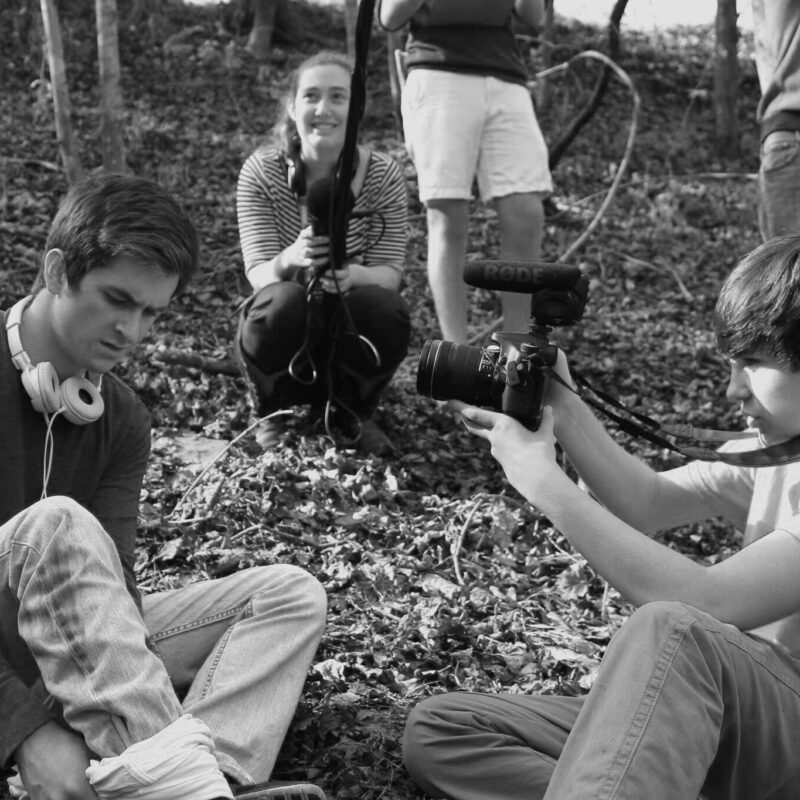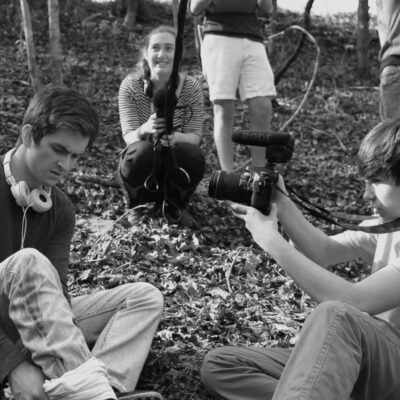From the opening moments of The Invisible Man, writer-director Leigh Whannell sets the stakes for the journey to come. Cecilia (Elisabeth Moss) is enacting an escape plan from her abusive boyfriend, Adrian Griffin (Oliver Jackson-Cohen). His house is a shrine to his pathological need to control while giving the illusion of freedom: walls made entirely of glass on the outside, omnipresent security cameras on the inside. She’s drugged his water to keep him asleep, and then repositions or disables every security camera in the building, by going into a mysterious control room. When Cecilia’s sister meets her outside the compound walls to drive her to safety, we get a glimpse of what makes Adrian dangerous, as he smashes through the passenger window with his fist.
This opening scene is noticeably longer than in similar movies, and it is vital to our emotional investment. Though we don’t yet know many of the narrative details, we know that Adrian is as wealthy as he is obsessive, with unfathomable financial and technological resources. We know that his abuse was frightening enough that Cecilia couldn’t simply leave, she needed to escape. And because the film is called The Invisible Man, we know that the subsequent stalking and gaslighting by an unseen force are not her imagination. Her fear of going outside is more than a trauma response. She figures out Adrian’s plan long before she can explain it to those who might help, but even then she is powerless to fight back. The suspense is not in what is happening, but in how to stop it.
The Invisible Man
R, 125 minutes
Alamo Drafthouse Cinema, Regal Stonefield 14 and IMAX, Violet Crown Cinema
Whannell’s depiction of an abuse victim is notable for its sensitivity and honesty toward the subject. Great genre and horror films succeed by literalizing our most extreme, intangible fears in the form of monsters; the effects of abuse linger after the apparent threat is over, and many victims do not come forward because they think they won’t be believed, or that support will be inadequate. The worst films are voyeuristic, where it feels like the director is secretly enjoying the abuse hurled primarily at women. The former is a cathartic meditation, the latter is a misanthropic fantasy. The Invisible Man is very much the former, bolstered by another bravura performance by Moss, as well as Whannell’s exceptional knack for pacing, which is alternately lingering and explosive depending on the needs of the scene.
The Invisible Man is the first film to come from Universal’s reshuffling of its Dark Universe project following the spectacular failure of 2017’s The Mummy. The focus has moved from interconnectedness to standalone stories, enlisting producer Jason Blum of Blumhouse to do what he does best: low-cost movies that give storytellers freedom. Between this and recent entries in the DC Extended Universe that are much more grounded (relatively speaking), the move away from bloated tentpoles has been a positive one. Even if you’re on the fence about The Invisible Man, it’s worth supporting so that big studios will continue this reorientation, raising the overall quality of their output and diversifying the sorts of stories that get a green light.
Local theater listings
Alamo Drafthouse Cinema 375 Merchant Walk Sq., 326-5056.
Regal Stonefield 14 and IMAX The Shops at Stonefield, 244-3213.
Violet Crown Cinema 200 W. Main St., Downtown Mall, 529-3000.
See it again
King Kong
G, 150 minutes
March 15, Regal Stonefield 14 and IMAX





